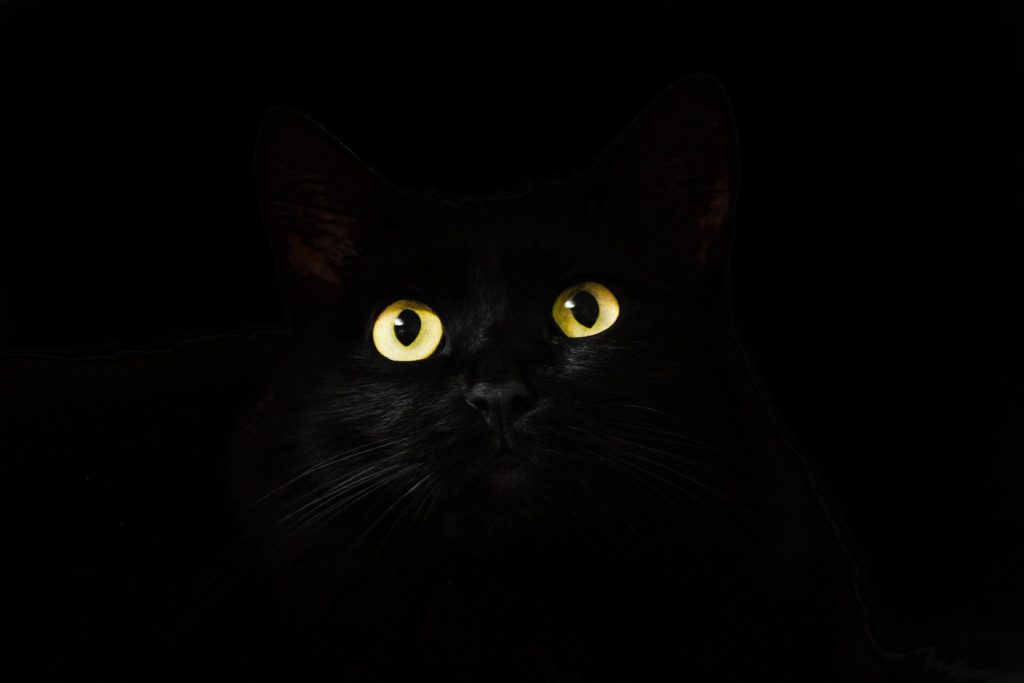It goes back to prehistoric times. The main reason 10-year-old boys get hungry every hour is to discourage them from running away from home so often and from going so far each time. With more young males staying close to the home fires, where meals come from, fewer of them will venture off to fall over cliffs and be picked clean by buzzards. Then years later, when the time was right, there’ll still be enough of them around to go forth and multiply. It’s a built-in survival mechanism for our species, an evolutionary trick, in much the same way that babies are adorable so people will be less inclined to leave them in bullrushes.
I am living proof of this theory, having run away three or four times myself, only to return before the next mealtime. It’s not that I had cooled down or forgiven my trespassers. I didn’t physically ache and wasn’t out of breath. It’s simply that I’d used up all the fuel that fits in a ten-year-old’s body. Worse, I also possessed a typical ten-year-old’s ability to plan, so it never once occurred to me to pack anything to eat. This is how I discovered, on more than one occasion, that hunger, so primal and sharp, is an unrelenting motivator.
On my final attempt to flee I had maybe $1.35 in my pocket and a sturdy bike to whisk me to the farthest corner of town. There I would embark on an exciting new life, free of the kind of parents who would force their child to rake leaves, carry folded laundry up from the basement, or any number of things designed to make life intolerable. The farthest corner of my small city of Niagara Falls was maybe four miles from our house as the crow flies. It was a location I believed to be so distant, so unfathomably remote that sniffer dogs, helicopters and my parents would never find me in a hundred years. How was I to know that even in the late sixties $1.35 barely got you past the lunch hour.
By the time I’d cycled as far as my friend Barry Dell’s house I was a whole mile from home – and every schoolboy knows a mile is a long, long way. Barry Dell lived so far away that he and I didn’t even go to the same school or the same church. We knew each other because we had joined the same Cub Scout pack. Going to Cubs was the highlight of my week. I was reasonably outgoing and athletic in those days – husky was the term I’d hear from relatives and well-meaning strangers. Crushing introversion and a distaste for contact sports are traits that would come for me later, at puberty, arriving just in time to destroy my chances with the local girls.
Not only was I among the first guys you’d pick for your floor hockey team but, with a full sleeve of merit badges, I had also achieved the rank of Cub Scout sixer. This put me in charge of a group of six boys and one of the main duties was making sure we all stood at attention to recite the pledge:
I promise to do my best
to do my duty to God and the Queen
to keep the law of the Wolf Cub pack
and do a good turn every day
The next duty was making sure we all sat down before anyone loudly wondered what, exactly, was the law of the Wolf Cub pack.
A triangular patch sewn onto our uniforms denoted which six you belonged to – grey, red, black and so on. Mine was the Tawny Six. According to the patch, tawny is a gentle hue, the colour of Bambi, somewhat more than beige but definitely not a manly shade of brown. Boys were not clambering over each other to join the Tawny Six. And unless the subject is owls or baby names for girls, the word tawny does not reappear in the vocabulary of the average Canadian male for the remainder of his natural life.
Reaching Barry Dell’s house set a new milestone in my history of escapes. It was farther than last time, when I only made it to Aunt Eileen’s before it started to rain and I turned back. It was a light summer rain, a sprinkling which took ages to fall to earth and evaporated almost as soon as it landed. But it did technically qualify as rain and gave me all the excuse I needed. Hunger was the real reason to abort the mission, of course, and it was the onset of hunger that struck me now and quickly overwhelmed any possible brain functioning. I had even forgotten which parental sins caused me to pedal off in a blur of rage in the first place.
I coasted to a stop a couple doors past Barry’s house and hunched over my bike as pangs of hunger stabbed from the inside. This was a dangerous place to stop because if Barry’s dad happened to be mowing the front lawn just then he’d easily spot me and things might go badly:
‘Hey, Paul, you okay?’ He’d come towards me, wiping his hands with a rag.
‘Oh hey, Mr Dell, yeah I’m fine.’ I’d place a foot onto a pedal. ‘Just headin’ home – see ya, bye!’
He’d grasp the handlebar gently but with unmistakable firmness. ‘But that’s a mile from here. I’ll drive you.’
What could I do then, punch my friend’s dad?
Get the best of Moxy directly in your inbox.
So I’d stand there like a dope while he strapped my bike into the trunk. Then I’d slump in the passenger seat, flipping air vents the whole way home. Sensing my embarrassment, Mr Dell wouldn’t talk much, either. He’d stop at the foot of my driveway, extract the bike and give me an encouraging pat on the back. Needless to say, my mum would’ve magically materialised at the living room window, watching with arms folded, awaiting a perfectly good explanation for why Barry Dell’s dad had driven me home with my bike in the trunk.
The only worse scenario would’ve been if Barry himself appeared at the front of his house at that moment.
‘Are you running away from home?’ he’d say with a smirk, knowing he’d busted me. But it was a fair question anyway, since I’d just ridden past his house without knocking on the door to see if he wanted to come outside and wrestle.
It was a fair question also because running away was a topic of some discussion among the boys I knew. For us, though, running away for real was the stuff of fiction, tales told around campfires. Certainly nobody we knew personally had actually fled for longer than an afternoon, much less escaped from a truly abusive household or disappeared to join the circus. Girls, even at that age, must be less blinded by anger and ego, because it seems they don’t even try to run away at the rate boys do. However, I believe their numbers spike in the teenage years, often with tragic consequences.
‘No,’ I’d say to Barry after a long, unconvincing pause. And then, from the very moment he’d blab all about my botched adventure to everyone at the next Cub Scout meeting, I’d be known far and wide and forevermore as the Husky Hobo. That, I guess, is what friends are for.
∆
When we lived in Toronto and my three children were an average age of ten, we adopted a kitten from the Salvation Army. It wasn’t the Salvation Army, of course, but the Humane Society. Don’t ask why, but whenever my mind thinks of the words the Humane Society a loose connection up there makes it come out of my mouth as the Salvation Army. Maybe I ought to call the brain electrician one day and get it fixed. On the other hand, maybe there’s a kind of link between them after all, as they’re both places to find treasures among the things other people no longer want.
From our list of possible names, we decided on Zazu, after the animated bird in The Lion King movie, splendidly voiced by the actor Rowan Atkinson. Until then Atkinson was perhaps best known for his TV portrayal of Mr Bean, a devious character who never spoke a coherent word of English, and only made mischievous grunts and groans. Zazu the cat is like that, too. She doesn’t speak the way normal cats do and has never produced anything close to a proper meow in her life. When she feels chatty or annoyed she’ll emit a distinctly un-feline noise partway between a growl and a duck-quack, making me wonder if Mrs Bean wouldn’t have been a better Atkinson-themed name for her. She’ll often stride into a room with a casual nod and a single grunt – the cat equivalent of ‘sup, dude?’ At other times her gurgling will consist of several syllables and it’s fun to imagine her saying things like ‘garrulous’ and ‘kookaburra.’
My one condition on getting a family cat was for the kids to agree to take turns doing the litter. ‘We promise!’ they all promised. Once in a while a neglected, saturated litter box would result in a glistening turd appearing on a freshly laundered duvet cover, presented with care and precision like a chocolate on the pillow at a fancy hotel. But mostly the kids were reasonably good at the chore. Today, inevitably, I’m the one on litter box duty, and since the kids are grown now and live in different countries I’ve let them off the hook. As it turns out, I’m no better at the job than they ever were. Sifting for poop and clotted pee simply isn’t going to be the highlight of anyone’s day.
The Salvation Army had strict adoption policies. You couldn’t just walk in and come out twenty minutes later with a dachshund under your arm. There were forms, there were fees, there was a finger-wagging lecture to attend. When it came to cats, you signed a declaration that you would never have her claws removed, for that was deemed an act of animal cruelty. And we complied. At first.
By the time we finally decided to have her claws removed, we had already suffered through years of shredded curtains, lacerated woodwork and disemboweled upholstery. Still, it wasn’t an easy decision, but we felt it was finally our turn to live in a place more fit for human habitation and the occasional dinner party. Besides, we reasoned, she’ll never actually need her claws. This pampered, furry beast with zero survival skills was never going to be let outside.
Never.
I’m pretty sure it was me who left the back door open one particular day. And since nobody in the family actually saw Zazu slip out, it took us a while to realise she was in fact missing. Just to be sure, we organised a calm, methodical search throughout the entire house:
‘What? Dad, you left the back door open?’
‘Yeah, um … maybe. Can you please look under your—?’
‘She’ll get eaten by squirrels!’
‘Actually, squirrels don’t eat c—’
‘She’ll get hit by a car!’
‘Okay, but first let’s just see if she isn’t hiding in—’
‘You’re a horrible father!’
‘Yeah okay, but did you check in your closet behind the sweaters?’
And so on, until we had checked, double-checked and triple-checked every sock drawer and laundry pile, behind the furnace and water heater, under the kitchen sink, atop every shelf and inside every conceivable cupboard, container and enclosed space including the cutlery drawer and dishwasher.
It should be noted here that Zazu had recently turned ten – the same age I was last time I ran away, but middle-aged for a cat. The spring in her step had stiffened over the years, and though she still liked jumping onto beds, it now required some effort accompanied by an extended groan that sounded like ‘Guggenheim.’ She’s a beautiful and beloved tabby with luminous green eyes but lately she’d let herself go, as bored house cats do, and bulked up to the size of a medium dog. When we expressed concern during a visit to the vet, the doctor held up one of Zazu’s paws and said, ‘She was never going to be a dainty lady with those feet.’
Reluctantly we escalated our search to the outdoors. Our narrow backyard was fenced in on three sides, enclosing a typical urban garden of beech trees and tangled ground cover, and there was a dank place under the deck where cobwebs grew. With few places to hide, it didn’t take long for us to be sure Zazu wasn’t here. We advanced to the car port, which opened onto a lane-way lined in both directions with garages, parked trucks, mounds of renovation rubble and gates to neighbouring properties left enticingly ajar – all of it offering infinite escape routes and a universe of hiding places.
‘Way to go, dad, she could be anywhere by now.’
‘Yeah. Uh-huh.’
That evening I walked through the neighbourhood, taping up Missing Cat posters and calling Zazu’s name in the most un-freaked-out, apologetic voice I could muster. There was no response. When I retuned home there was an email from a woman who ran a community website, asking my permission to scan the poster and share it alongside their notices about fundraising bake sales and reminders of which way the recycling bins are supposed to face on Wednesdays. ‘Yes, please!’ I wrote back immediately, surprised that there were such kind and keenly vigilant people out and about.
As darkness fell, another set of concerns occupied our minds. It was mid-May, so at least Zazu wasn’t going to freeze to death. But there were other ways to get killed. Toronto teems with urban wildlife, particularly the nocturnal kind. Coyotes are known to emerge in silence from the black ravines, then vanish into the trees a moment later with a spaniel in their jaws. There are plenty of foxes around, too, and the odd wolf. The more immediate worry for our defenseless Zazu was that she’d be torn apart by fully-clawed alley cats protecting their turf. Or she’d find herself stuck between garbage cans and a gang of raccoons the size of burglars. Or maybe she would eventually find her way home one day, rat-bitten, bee-stung and riddled with fleas and disease.
None of us got much sleep that night.
Late the following afternoon there was a knock on the door. A man from down the street had seen our poster and said that a cat matching the description had been sleeping in his garage. I followed him to a workshop wonderland where he had every imaginable tool, fluid, clamp, nut, bolt and spare part immaculately arranged and proudly displayed. The guy clearly spent entire days here, with the door open for ventilation and light, building things and fixing stuff. He pointed to a neatly folded tarpaulin on the floor between the drill press and the lathe. ‘Well, she was there.’
The garage led onto a hidden alley I hadn’t previously explored – and didn’t even know existed until then. I crept along and soon enough I heard a familiar grunt. It was not the jubilant cry of salvation I imagined it would be. It was more the sound of a dull observation along the lines of ‘Oh. It’s you.’
Zazu was perched like a sphinx on top of the retaining wall of a sloping driveway and was well beyond my reach. She arose, in no particular hurry, paused for a refreshing yoga stretch, and ambled towards me. The second she was close enough I scooped her up and held her tightly in my arms. She was unharmed and bug-free yet disappointingly blasé – neither traumatized nor exhilarated – about her day-long adventure into the wilds of MacPherson Avenue.
On the walk home I rubbed my knuckles into her scalp, the way she likes.
‘Arugula,’ she said in response.
‘You’re absolutely right, kitty-cat,’ I said, ‘it’s almost dinner time.’
Paul Ruta is an old ad guy living in Hong Kong. He wrote a children’s book under the pen name Andy Spearman, published by Knopf. He has talked baseball with Vidal Sassoon, smoked Marlboros with Johnny Rotten, and has won a trophy for throwing a Frisbee very far. Upcoming work in Reflex Press and Smithsonian Folklife. @paulruta





